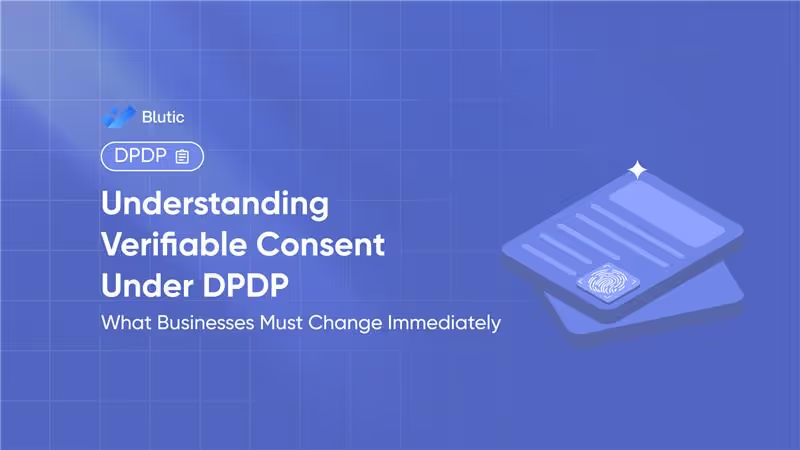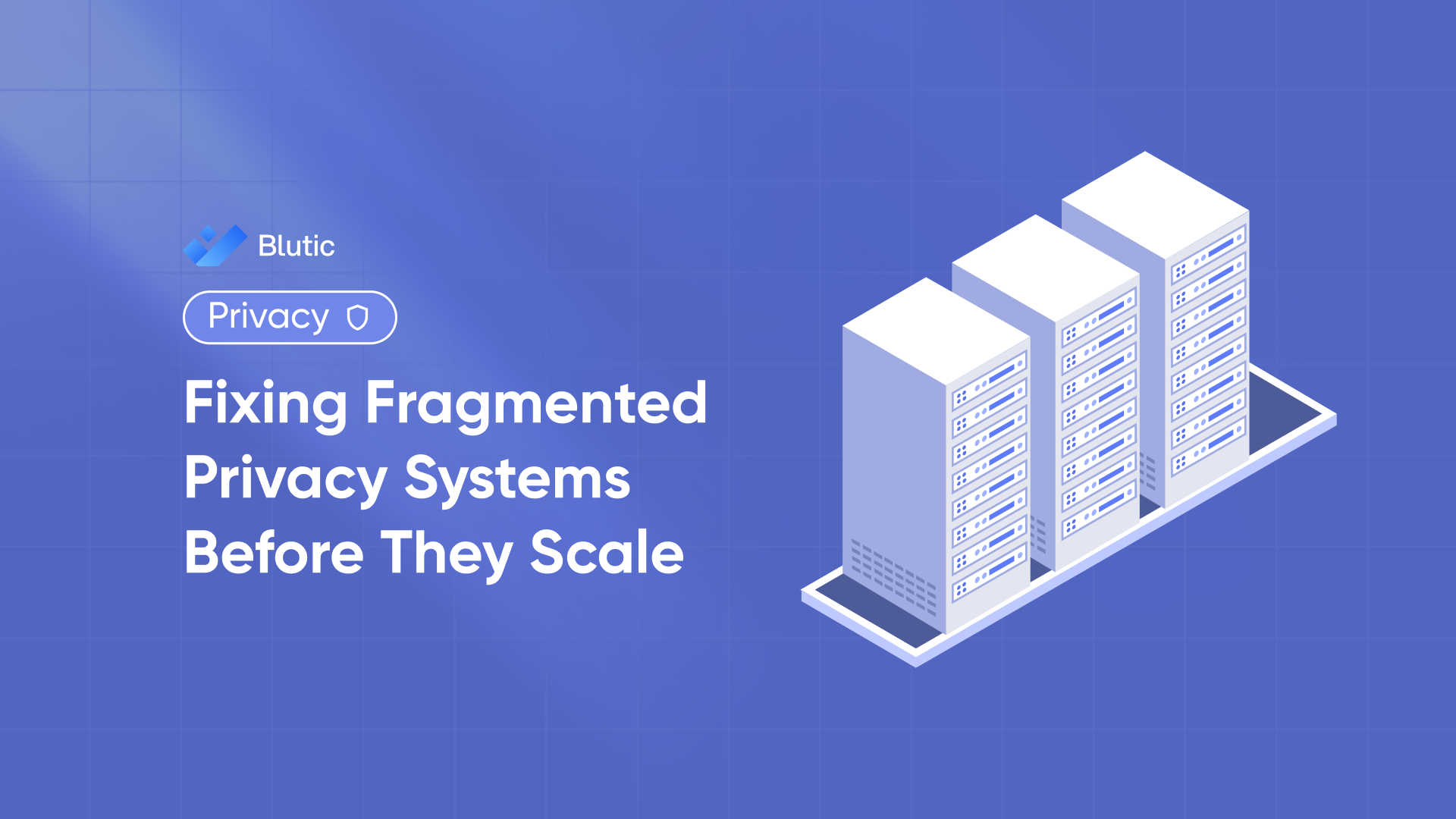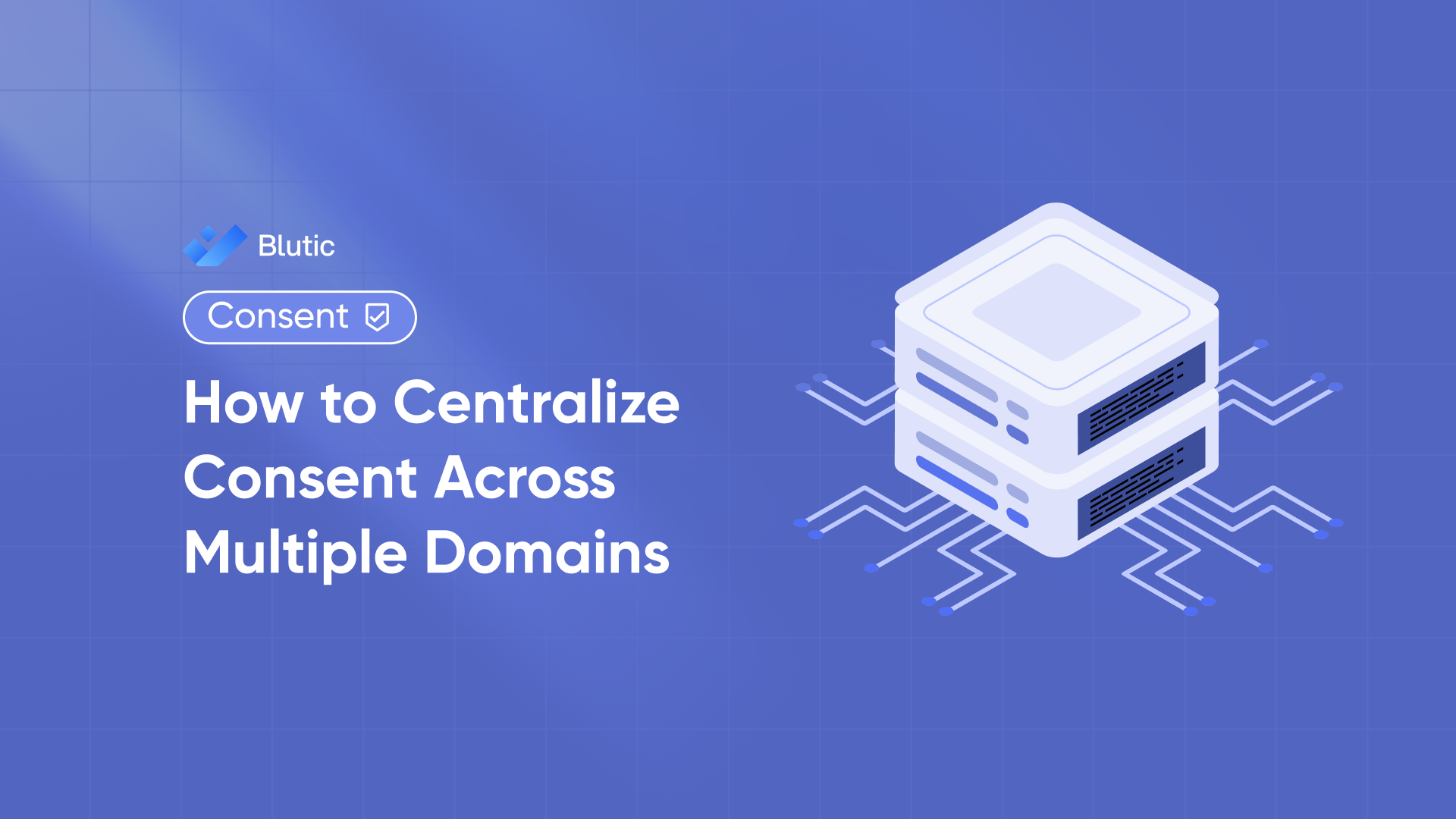Understanding Verifiable Consent Under DPDP: What Businesses Must Change Immediately

Understanding Verifiable Consent Under DPDP: What Businesses Must Change Immediately
Introduction
The Digital Personal Data Protection Act (DPDPA) has redefined how businesses in India must handle user data. At the heart of this regulation lies a core principle: verifiable consent. It's no longer enough to simply show a “By using this site, you agree” banner. The DPDP Act requires businesses to prove that users gave informed, voluntary, and specific permission or risk penalties of up to ₹250 crore.
In this blog, we break down what verifiable consent means under the DPDP Act, the key differences from older consent models, and what changes Indian websites, apps, and businesses must implement immediately.
What is Verifiable Consent Under DPDP?
Verifiable consent means businesses must not only obtain clear and informed consent, but also retain proof of it.
Under Section 6 and relevant rules of the DPDP Act:
- Consent must be informed, specific, unambiguous, and freely given.
- Individuals must have the right to withdraw consent as easily as they gave it.
- Businesses must maintain audit-ready records proving consent was obtained legally.
- Consent must include purpose, data categories, and processing details.
In short: No pre-checked boxes. No vague language. No blanket opt-ins.
Why Businesses Must Act Now
With the Act live from 13 November 2025, and full compliance required by May 2027, businesses that delay risk:
- Data processing violations due to outdated consent systems
- Inability to demonstrate consent during audits
- Penalties up to ₹250 crore for non-compliance
- Loss of user trust and brand credibility
This is especially urgent for websites using cookies, tracking pixels, or marketing automation tools like Google Analytics, Meta Pixel, HubSpot, etc.
What Indian Businesses Must Change Immediately
1. Upgrade Your Cookie Consent Banners
If your current banner says “By continuing to browse, you accept…” it’s non-compliant. Switch to:
- Explicit opt-in with granular toggles (Functional, Marketing, Analytics, etc.)
- A rejection option equal in visibility and accessibility to the acceptance button
- Geo-targeted banners for Indian users to meet India’s consent laws
Tools like Blutic offer customisable banners with DPDPA-compliant templates.
2. Implement a Consent Management Platform (CMP)
A CMP helps you capture, store, manage, and audit every consent interaction across websites and apps. It enables:
- Centralized consent logs (with timestamp, IP, purpose)
- Consent withdrawal management
- Automated updates to trackers and tags (via GTM Consent Mode)
Blutic offers a consent management platform for India with integrations for Shopify, WordPress, WooCommerce, and custom apps.
3. Create a Consent Preference Centre
Give users the power to:
- View what they’ve consented to
- Change preferences at any time
- Withdraw consent in a click
This not only meets DPDP requirements but also builds transparency and trust.
4. Train Your Teams & Update Policies
Legal, tech, and marketing teams must be aligned on:
- What constitutes valid consent
- How to log and store it securely
- How to update privacy policies and UX copy
Your Privacy Policy, Terms of Use, and Cookie Notices must reflect these changes clearly.
Tools That Help: Blutic’s Verifiable Consent Solution
Blutic simplifies verifiable consent with:
- Automated cookie banners (multi-language)
- Full consent lifecycle tracking
- Consent analytics dashboard
- Geo-targeted consent flows for India
- Audit trail with withdrawal logs
- Seamless integrations with GTM, Shopify, WordPress
Perfect for fintech, SaaS, eCommerce, healthcare, and edtech startups and enterprises.
Verifiable consent is no longer a “nice to have” it’s the cornerstone of digital trust under the DPDP Act. Indian businesses must move beyond passive consent models and embrace active, traceable, user-first consent mechanisms.
With Blutic, you can become DPDPA-ready, stay audit-safe, and avoid penalties all while building better digital relationships.
Frequently Asked Questions
Yes. Any business whether Indian or foreign collecting personal data of Indian residents must comply.
Consent management platforms like Blutic, Cookiebot, and Usercentrics (Blutic being built specifically for India) provide audit-compliant consent solutions.
Yes. Both acceptance and rejection options must be presented equally and fairly. Hiding “Reject All” or pre-selecting “Accept All” is non-compliant.




.svg)
